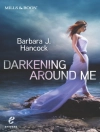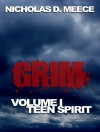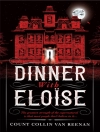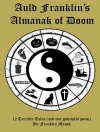In the anthology *60 Gothic Classics*, readers embark on a thrilling exploration of the Gothic literary tradition, traversing the eerie landscapes, haunted spaces, and complex psyches that define the genre. This carefully curated collection spans centuries and continents, deftly capturing the transformative power of Gothic literature through a stunning array of narratives. The anthology balances the unyielding darkness of gothic horror with the suspenseful allure of romanticism and the introspective profundities of psychological intrigue. Each piece, whether it delves into the supernatural or the macabre, contributes to a cohesive tapestry of dread and wonder, ensuring readers are captivated by the mysterious atmospheres and profound character studies within. Esteemed authors like Charles Dickens and Mary Shelley stand shoulder to shoulder with other luminaries such as Edgar Allan Poe and Charlotte Perkins Gilman, forming a formidable ensemble of literary talents. Together, they illuminate the multifaceted dimensions of the Gothic tradition, reflecting a shared fascination with themes of mortality, identity, and the uncanny. From the chilling echoes of Victorian horror to the enigmatic whispers of Romantic influence, their collective voices capture the essence of the Gothic through diverse cultural and historical lenses, enriching the anthology’s thematic depth and resonance. *60 Gothic Classics* presents a unique opportunity for readers to delve into a masterfully assembled collection that offers a rare convergence of timeless narratives. It invites enthusiasts and scholars alike to experience the vast interplay of gothic traditions and innovations, envisioning the world anew through the lens of its darkly poetic insights. This anthology is more than a mere collection; it is a dialogue between past and present, challenging readers to contemplate the shadows within their own world while appreciating the indelible marks left by these legends of literature.
Over de auteur
Charles Dickens (1812–1870) is revered as one of the greatest novelists of the Victorian era, whose works remain eminent for their narrative vigor, keen social observation, and piercing critique of societal ills. Born in Portsmouth, England, Dickens rose from humble beginnings to become a towering literary figure, his life’s trajectory mirroring some of the rags-to-riches tales depicted in his fiction. His novels, many of which were first serialized in periodicals, captured the imagination of readers with their vivid characters and intricate plots.
Notably, while ’60 Gothic Classics’ is not a work singularly authored by Dickens, his contributions to the gothic genre cannot be overlooked. His flair for the grotesque and the supernatural is palpable in tales like ‘The Signal-Man’ and elements within his larger works, such as ‘Great Expectations’ and ‘Bleak House’. Dickens’s literary style is characterized by its rich, descriptive prose, its use of irony and humor, and its unfailing empathy for the underprivileged. His exploration of social issues, from poverty to child labor, not only entertained but also ignited reformist agendas. Dickens’s enduring legacy as a literary virtuoso has ensured his place in the pantheon of the English literary tradition. His works continue to be studied for their artistic merit and their profound humanity.












